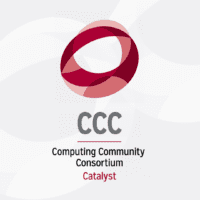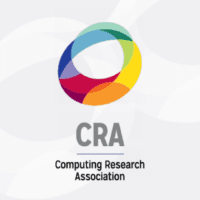CRA Early Career Awards: Reflections from the First Winners
By Lauren Lashlee, Senior Program Associate, CRA-E, and Matt Hazenbush, Director of Communications
The CRA Early Career Awards recognize rising stars in computing research who are making impactful contributions to their fields while championing diversity, equity, and inclusion.
- The CRA Anita Borg Early Career Award honors early-career researchers who embody the spirit of Anita Borg through significant achievements in their field and a dedication to advancing diversity in computing, particularly for women and other underrepresented genders.
- The CRA Skip Ellis Early Career Award is given to researchers who exemplify the legacy of Clarence “Skip” Ellis, the first African-American to earn a PhD in computer science, by combining research excellence with a commitment to increasing participation from historically excluded groups in computing.
With the January 31 nomination deadline fast approaching, we urge you to help shine a light on these emerging leaders by submitting a nomination. These awards rely on the community’s participation to identify and honor the future trailblazers in our field.
To inspire your nominations, we’re spotlighting the journeys of the first recipients of these prestigious awards: Dr. Joanna McGrenere, winner of the inaugural CRA Anita Borg Early Career Award in 2004, and Dr. Tawanna Dillahunt, winner of the inaugural CRA Skip Ellis Early Career Award in 2020. Their stories demonstrate the transformative power of recognition and the lasting impact of their work on computing and diversity.
Joanna McGrenere: Pioneering Inclusive Design in HCI
 “Winning the CRA Anita Borg Early Career Award was thrilling and profoundly validating,” reflects Joanna McGrenere, Co-Head and Professor at the University of British Columbia. “It bolstered my confidence to pursue a new research direction so early in my faculty career.”
“Winning the CRA Anita Borg Early Career Award was thrilling and profoundly validating,” reflects Joanna McGrenere, Co-Head and Professor at the University of British Columbia. “It bolstered my confidence to pursue a new research direction so early in my faculty career.”
McGrenere’s groundbreaking work in Human-Computer Interaction (HCI) has focused on making technology more accessible and personalized. Her Aphasia Project created multimodal systems for people with cognitive impairments, a previously underexplored area in HCI. “When I started, there was almost no research in this space. I had to carve out a new area and build a community,” she says.
Her team’s research has since expanded to include improving technology for older adults, addressing usability challenges, and designing adaptive and personalized interfaces. “I’m proud of how we’ve influenced both academia and industry,” she says, pointing to collaborations with IBM, Microsoft, Slack and other tech companies.
On Mentorship and Leadership
McGrenere has mentored over 50 graduate students, more than half of whom are women, a stark contrast to national averages. “I think my greatest contribution to computer science has been my mentoring,” she shares. Her advice to early-career researchers? “Find mentors with different perspectives and be proactive in seeking their guidance. Leadership is a journey — stay curious, take one day at a time, focus on all that you are learning as a leader, not perfection, and embrace it.”
Looking Ahead
As co-Head of her department, McGrenere is shaping the next generation of computer scientists. Her goal? To ensure every computer science undergraduate gains hands-on experience with user-centered design. “HCI has evolved to be more central in software creation, but we still have work to do. Technology should empower everyone, not frustrate or exclude them.”
Tawanna Dillahunt: Building Community-Centric Technology
 For Tawanna Dillahunt, recipient of the inaugural CRA Skip Ellis Early Career Award, the recognition affirmed her commitment to impactful research. “It reminded me that my work was meaningful — not just for me, but for the communities I work with,” she says.
For Tawanna Dillahunt, recipient of the inaugural CRA Skip Ellis Early Career Award, the recognition affirmed her commitment to impactful research. “It reminded me that my work was meaningful — not just for me, but for the communities I work with,” she says.
Dillahunt’s research at the University of Michigan bridges technology, employment, and community well-being. She focuses on designing digital tools that address systemic inequities, particularly in economically disadvantaged communities. “My work has shifted from fixing flawed technology to understanding the community practices that drive sustainable solutions,” she explains.
One such collaboration, with Detroit’s Eastside Community Network, revealed the importance of mentorship models rooted in trust and shared accountability. “We uncovered new mentorship frameworks—like the ‘Village’ model—that balance power dynamics and emphasize collective resilience,” Dillahunt shares.
Navigating Challenges and Embracing Growth
Dillahunt is optimistic about the opportunities presented by generative AI, despite the rapid pace of change. “I want to demystify AI for communities and ensure its development is equitable and ethical,” she says. Her NSF-funded workshops aim to engage the public in shaping responsible AI.
Mentorship, for Dillahunt, is a two-way street. “I’ve learned so much from those I mentor,” she says. Her advice to early-career researchers? “Step outside your comfort zone, commit to lifelong learning, and don’t let fear hold you back. Prove yourself to yourself, not to others.”
Shaping the Future of HCI
Looking ahead, Dillahunt envisions HCI expanding into areas like smart cities and urban planning. “I hope to inspire the next generation of researchers to think critically about the societal impact of their work,” she says.
Be Part of the Legacy: Nominate Today!
The journeys of these two inspiring computing researchers showcase the profound impact of early-career researchers in computing. Their work not only advances the field but also fosters a more inclusive and equitable future.
Do you know someone whose research and leadership deserve to be recognized? The CRA Early Career Awards are your opportunity to honor them.
Nominations are open through January 31, 2025. Submit your nomination today and help spotlight the next generation of leaders shaping the future of computing.









